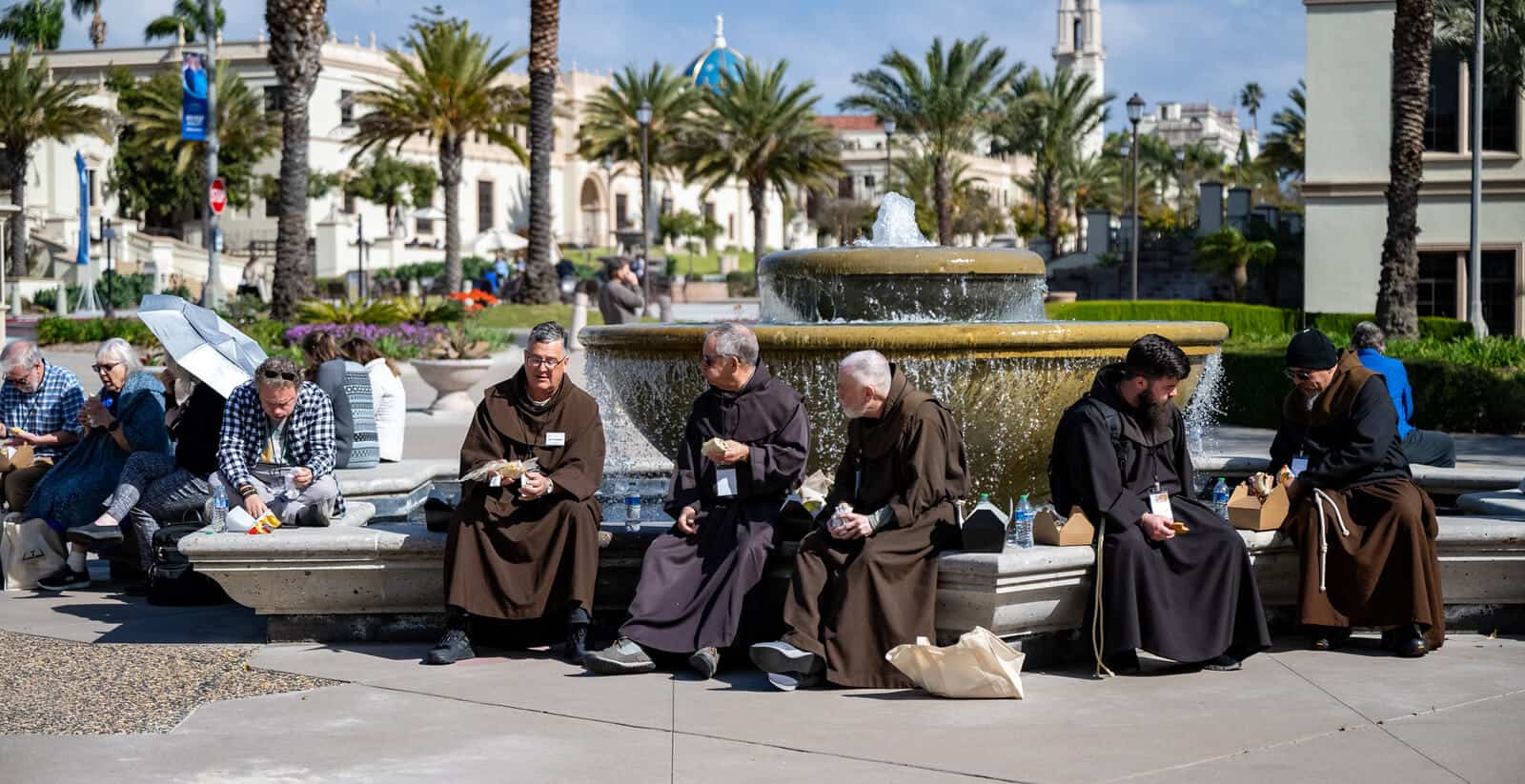August 2025 issue of Give Us This Day

3 mins read
August 2025
Within the Word
Respond with Joy
Vanity is a difficult word to understand. We can think of it as excessive pride or inflated self-worth, but the Bible is trying to get at another concept. Vanity translates the Hebrew word: hebel. This word can be derogatory in Ecclesiastes, as it describes something that is fleeting or transitory or even futile, literally a puff of breath. One may be able to imagine a cold winter morning when you can see your breath, but it is only for a fleeting moment and then it disappears. Yet, the point of Ecclesiastes is not futility, but the need to respond to that futility with joy.
Our first reading on Sunday accentuates the arbitrariness of leaving our property to someone who may not have worked as hard as us. It also speculates that anxiety and worry are not productive, they are fleeting and leave no visible positive results. Ecclesiastes invites us to dwell on our lived experiences and the voice of wisdom rather than the abstract experiences of worry or possible inheritance.
As we survey our readings for the week, we can put them in dialogue with this first reading on vanity. Sunday’s Gospel from Luke 12 uses a parable to describe the arbitrariness of riches as it describes a wealthy man who suddenly dies. We are encouraged to consider what God wants us to store. Perhaps patience, charity, and humility will be much less fleeting in our lives here on earth and our life to come than riches. Is it better to be rich in mercy rather than rich in gold?
On Thursday, Numbers 20 captures Israel in the equivalent of Death Valley. Rather than balance consolations and desolations, the people are only interested here in desolations as the complaints mount. We can often find ourselves in groups that are gossiping and tearing people down instead of lifting them up, which results in a race to the bottom. Numbers 20 shows us what the bottom looks like at Meribah as Moses and Aaron fail to trust. The anger of Moses and the people fill the void.
We have a respite from all this grim reality on Wednesday when we celebrate the feast of the Transfiguration. Here we see the possibilities of our faith life when we are able to follow Jesus on the journey. When we stay close to Jesus, God will be a much more vivid presence in our lives. I would have to imagine that like any journey up a mountain, Peter, James, and John’s journey was challenging. We hear uniquely in Luke that this was a journey to pray. Prayer often pushes us in the direction of thanksgiving rather than complaining. Prayer transforms Jesus, and I believe one of the promises of the Transfiguration is that prayer can transform us.
We see two paths of transformation in our readings this week. We can complain and complain, which ultimately leads to desolation and the ability to see all the problems of our world. Or, we can take the advice in Ecclesiastes and realize that worry and unfettered materialism will not positively transform us. We are called to joy in seeing God’s perspective and gratitude for that perspective. In Admonition XXVII, St. Francis of Assisi said: “Where there is poverty with joy, there is neither covetousness nor avarice.”
Garrett Galvin
Garrett Galvin, OFM, is the president/rector of the Franciscan School of Theology at the University of San Diego, an associate professor, and author of David’s Successors: Kingship in the Old Testament.
[CREDIT] Garrett Galvin, from the August 2025 issue of Give Us This Day, www.giveusthisday.org (Collegeville, MN: Liturgical Press, 2025). Used with permission.

6 Questions to Consider Before Pursuing a Master’s Degree
Do you feel a pull toward something more? Take the next step in discerning your unique vocation by downloading our free resource, Exploring Your Vocational Calling:
Related Posts
-

Chaplain vs. Pastor vs. Priest: What’s the Difference?
When it comes to spiritual leadership, different roles offer distinct ways to serve and guide communities, both within and beyond a church setting. In the […]Read More 10 mins read -

The Franciscan Movement: Pastoral Power in Action Conference 2026
In a world hungry for healing, the Franciscan tradition offers something profoundly radical: the belief that love is power. Not the kind of power that […]Read More 5 mins read -

What Is a Police Chaplain? Duties & Responsibilities
In a profession shaped by high stress and emotional intensity, police officers often carry burdens that are unseen and unspoken. Amid these demands, police chaplains […]Read More 9 mins read
Take The First Step on Your Journey to Change the World.
Join a vibrant academic and spiritual tradition.
